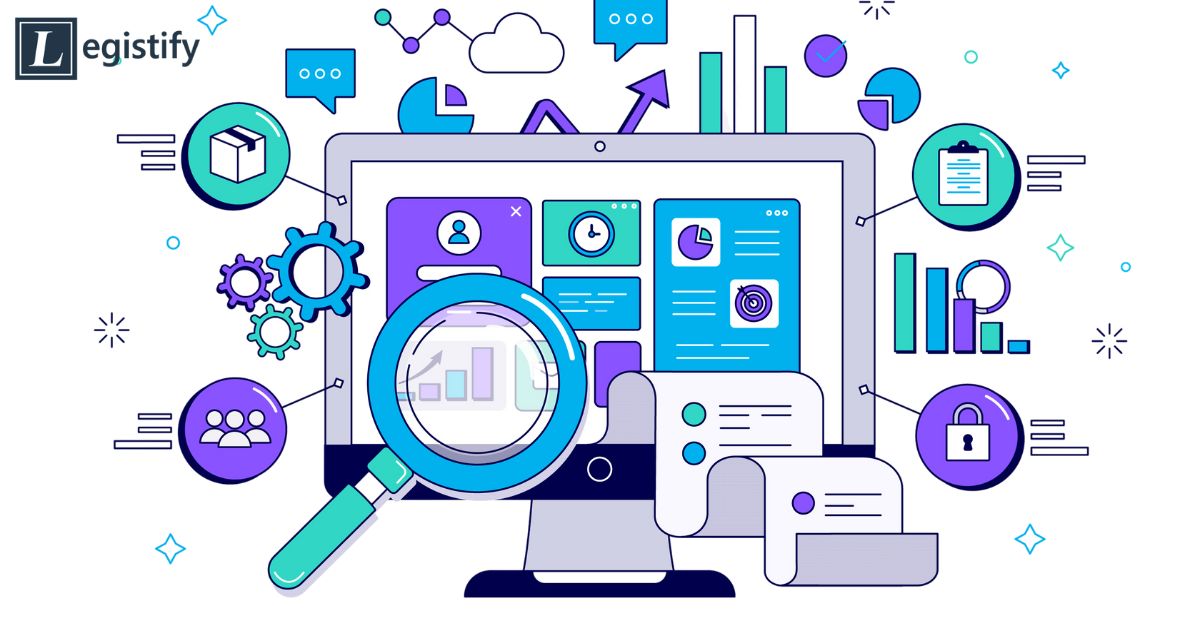Manual vs AI-based Litigation Management
Enterprises often find themselves involved in legal matters that require close attention and effective management in today’s dynamic and complex business environment. Litigation, whether it involves contractual disputes, intellectual property issues, or regulatory compliance, can have a significant impact on an enterprise’s operations and reputation. While manual litigation management remains a crucial component for enterprises, technology has revolutionised many aspects of business, simplifying the way enterprises handle their legal affairs. In this article, we will discuss the difference between manual and AI-based litigation management for enterprises.
What Litigation Management Involves?
Litigation management is the comprehensive and time-bound process of handling legal matters within an enterprise. This process requires legal expertise, strategic thinking, and a comprehensive understanding of the legal intricacies of different jurisdictions where the enterprise operates. While manual management allows for a personalised and context-based approach, automated systems involving AI-based litigation management tools streamline legal processes for an array of legal issues within the enterprise. The process encompasses aspects such as case assessment, document review, communication with legal counsel, case tracking, task management, court updates, and decision-making regarding the legal action to be taken.
Manual Litigation Management
Manual litigation management enables enterprises to handle the complex details of each legal case, which allows for the development of tailored strategies. However, human expertise has its own restrictions when it comes to analysing unique circumstances, industry-specific regulations, and the overall business strategy of the enterprise. It may also include evaluating settlement options, deciding when to pursue alternative dispute resolution, and determining the potential impact of legal outcomes on the enterprise’s overall objectives.
While manual litigation management has been the traditional method for enterprises to handle legal matters, its drawbacks are evident in the fast-paced and data-centric business environment. Enterprises face challenges related to time efficiency, data processing, human error, subjectivity, scalability, resource intensiveness, and predictive capabilities. As technology continues to advance, enterprises are compelled to explore more sophisticated and efficient approaches, such as the integration of artificial intelligence, to overcome these limitations and achieve a more streamlined and effective litigation management process.
Limitations of Manual Litigation Management
One of the primary drawbacks of manual litigation management is the time-consuming nature of the processes involved. Tasks such as document review, data analysis, and information retrieval are labour-intensive, leading to delays in case resolution. Such time inefficiencies of manual processes can hinder an enterprise’s ability to respond promptly to legal challenges.
Manual litigation management struggles with the processing of vast amounts of data. In complex legal cases, the sheer volume of documents, communications, and information can overwhelm human resources. This limitation impedes the ability to extract valuable insights, identify patterns, and make data-driven decisions, putting enterprises at a disadvantage in today’s data-driven business environment.
Human error is an inherent risk in manual litigation management. The complexity of legal matters requires meticulous attention to detail, and even the most experienced professionals may make mistakes. Errors in document review, data entry, or strategic decision-making can have significant consequences, jeopardising the outcome of legal proceedings and potentially causing financial and reputational damage to the enterprise.
Manual litigation management often requires a significant allocation of human and financial resources. The redundant nature of tasks such as document review and case analysis can strain internal teams and lead to high legal costs. This resource intensiveness may not be sustainable for enterprises aiming to optimise their operational efficiency and cost-effectiveness.
Manual litigation management relies on historical knowledge and expertise, but it may lack the advanced predictive analytics offered by AI-based systems. Predicting legal outcomes and assessing potential risks with precision becomes challenging, hindering the enterprise’s ability to make informed and strategic decisions.
Transition to AI-Based Litigation Management
Keeping these challenges in mind, enterprises are increasingly turning to artificial intelligence (AI) to enhance efficiency and effectiveness across various functions. AI-based litigation management systems are revolutionising the way enterprises handle legal matters, offering advanced analytics, automation, and data-driven insights.
How AI-based Litigation Management Works?
AI, with its capacity to process vast amounts of data, identify patterns, and generate insights, brings a transformative dimension to litigation management. The key components of AI-based litigation management include:
Data Analytics
AI algorithms can analyse large datasets at a speed and scale that is manually impossible. This capability is particularly valuable in litigation, where copious amounts of information need to be sifted through to identify relevant patterns, trends, and precedents. Data analytics in litigation management can streamline the discovery process, providing a comprehensive understanding of the legal landscape surrounding a case.
Document Review and Management
AI excels in document review, significantly reducing the time and resources required for manual document analysis. Natural Language Processing (NLP) algorithms can sift through legal documents, contracts, and communications to extract relevant information, helping legal teams make informed decisions faster.
Predictive Analytics
AI-based litigation management tools can predict potential legal outcomes based on historical case data and legal precedents. This predictive capability assists enterprises in making strategic decisions, such as whether to settle or proceed with litigation. It enables a more informed approach to risk management and resource allocation.
Automation of Routine Tasks
AI can automate repetitive and time-consuming tasks, allowing legal professionals to focus on more complex and strategic aspects of litigation. Routine tasks such as document filing, scheduling, and data entry can be handled efficiently by AI systems, leading to increased productivity.
Outside Counsel Management
Using machine learning and comprehensive data analytics can help legal departments of enterprises to manage their outside counsel more efficiently. AI-powered legal management software can keep track of all the outside counsel that a legal department onboards.
Once data about a specific firm or lawyer has been entered into the software, it can track that firm’s performance and compare it with others. Additionally, litigation management software that is optimised for the entire enterprise can improve communication between outside counsel and in-house legal teams, as all relevant resources are available on a single platform with hassle-free collaboration.
Administrative Management
Enterprise litigation management software covers the entire matter, vendor, document management, budget, and billing management process. Such software can be used for electronic document management and tracking, calendaring, budgeting, and invoice tracking. The right enterprise litigation management software also includes a total financial overview, data analytics, reporting, and API integrations with other major software platforms spanning accounts payable and beyond.
Moreover, enterprise legal management software typically offers e-document storage, searching, bulk upload and downloads, user audit trails, and document assignments. Such options allow for an holistic database for an enterprise to track its incoming and outgoing legal matters more efficiently.
Cost Reduction
AI-based litigation management can significantly reduce costs associated with legal proceedings. The automation of tasks, coupled with the ability to streamline processes, leads to lower expenses for enterprises engaged in litigation.
Benefits of AI-Based Litigation Management for Enterprises
Efficiency and Speed
AI accelerates the litigation process, allowing enterprises to respond swiftly to legal challenges. Rapid document review, data analysis, and predictive capabilities enable quicker decision-making and resolution of legal matters.
Accuracy and Consistency
AI eliminates human errors and ensures a consistent approach to legal analysis. By removing the potential for oversight or bias, AI contributes to the production of accurate and reliable legal insights.
Strategic Decision Making
AI empowers enterprises with data-driven insights, aiding in strategic decision-making. Predictive analytics assist in assessing the potential outcomes of legal actions, enabling enterprises to devise effective litigation strategies aligned with their business goals.
Adaptability to Changing Legal Landscapes:
AI systems can continuously adapt to evolving legal landscapes by learning from new data and updates. This adaptability is crucial in navigating complex and dynamic regulatory environments.
Resource Optimization
By automating routine tasks and streamlining processes, AI allows enterprises to optimise their resources, allocating legal professionals to tasks that require human expertise and strategic thinking.
While both manual and AI-based litigation management approaches have their strengths, a balanced integration of the two is increasingly becoming the preferred strategy for enterprises. By combining the contextual understanding, strategic thinking, and communication skills of human professionals with the efficiency, accuracy, and automation capabilities of AI systems, enterprises can achieve a holistic and effective approach to litigation management.
Also Check: Enterprise Notice Management
Conclusion
The integration of AI-based litigation management software, such as LegisTrak, offers efficiency, accuracy, and strategic insights in handling legal matters to enterprises. The integration of AI technologies into the legal landscape enhances the ability of enterprises to navigate different statutory and regulatory environments, mitigate risks, and make informed decisions. While conventional enterprises rely on manual litigation management, the collaboration between human expertise and AI litigation management tools can help them operate more sustainably and efficiently.




